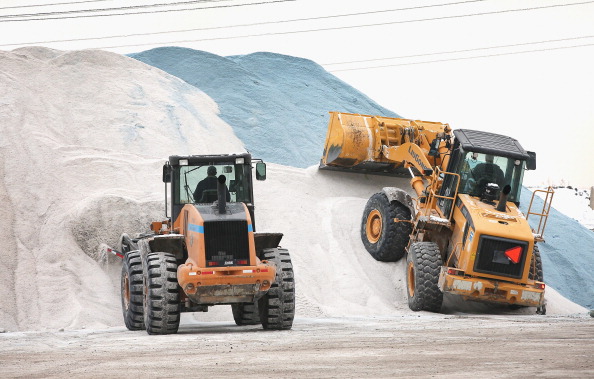
Cold-climate researchers at Washington State University (WSU) are using barley residue from vodka distilleries to develop environment-friendly deicers to combat highway snow.
Every winter season, the U.S. government spends $2.3 billion to remove highway snow and ice, but also another $5 billion to mitigate additional costs the process accrues. Most of the hundreds of tons of salt that is applied to American roads doesn’t degrade, and actually causes damage to the surface, vehicles and the environment.
“In 2013, the [Environmental Protection Agency] reported alarming levels of sodium and chloride in groundwater along the East Coast,” says Xianming Shi, associate professor in civil and environmental engineering in a press release from WSU. As a nation, “we are kind of salt addicted, like with petroleum, as it’s been so cheap and convenient for the last 50 years.”
Shi’s work is part of a U.S. Department of Transportation–funded collaboration between WSU, the University of Alaska Fairbanks and Montana State University.
Apart from developing deicers, the team is working on the technology of smart snowplows, which are equipped with sensors that collect data to help operators regulate the amount of salt they apply. They are also working on software and new types of concrete.
“Our ultimate goal is to apply the best amount of salt, sand or deicers at the right location at the right time,” Shi said.
Any advances would be welcome as road salt is in short supply in northern states, and prices have ballooned by 10% to 30% since last year.
Read next: Road Salt Prices Skyrocket After Last Winter’s Snowstorms
More Must-Reads From TIME
- The 100 Most Influential People of 2024
- The Revolution of Yulia Navalnaya
- 6 Compliments That Land Every Time
- What's the Deal With the Bitcoin Halving?
- If You're Dating Right Now , You're Brave: Column
- The AI That Could Heal a Divided Internet
- Fallout Is a Brilliant Model for the Future of Video Game Adaptations
- Want Weekly Recs on What to Watch, Read, and More? Sign Up for Worth Your Time
Contact us at letters@time.com